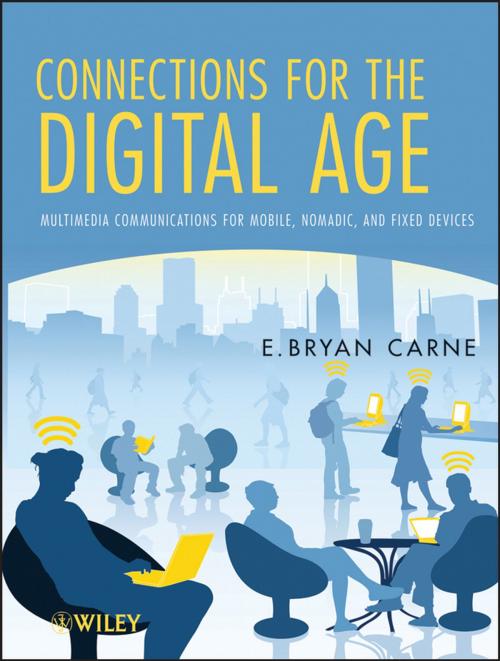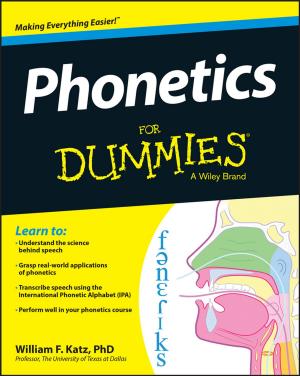Connections for the Digital Age
Multimedia Communications for Mobile, Nomadic and Fixed Devices
Nonfiction, Science & Nature, Technology, Engineering| Author: | E. Bryan Carne | ISBN: | 9781118104545 |
| Publisher: | Wiley | Publication: | July 26, 2011 |
| Imprint: | Wiley | Language: | English |
| Author: | E. Bryan Carne |
| ISBN: | 9781118104545 |
| Publisher: | Wiley |
| Publication: | July 26, 2011 |
| Imprint: | Wiley |
| Language: | English |
Explores and analyzes past and current technologies and trends in multimedia communication
Digital natives—those persons born in the digital age—have an ever-widening range of wireless-enabled devices at their disposal. They are the drivers of multimedia communications, continually seeking out the technologies and distribution channels that best match their needs. This book outlines the changes in telecommunications that are occurring to meet these needs. It addresses the continually increasing requirement to provide connections that make the electronic encounter as natural and convenient as possible, exploring the vast assortment of devices that exist as part of everyday living for digital natives.
Featuring precise diagrams and tables to illustrate the evolving environment, the book begins by describing the competitive interactions of telephone, cable TV, and cellular mobile companies in providing services and content. It outlines the creation of digital multimedia streams and how they are transported, explains what multimedia connections are available, and summarizes the activities of competitors while providing an overview of their markets and customer statistics.
This book uniquely covers wireline, optical fiber, cable, and wireless access methods, explaining the coding required to create digital streams. It combines ethernet with provider bridging and multi-protocol label switching and highlights the necessity to serve legacy streams. In addition, the book addresses controversial issue: will incumbent communications providers ever overtake Internet as the chief source of digital feeds and popular contents?
Featuring extensive references and a glossary of multimedia terms, Connections for the Digital Age is written for digital natives and other persons with an interest in multimedia communications; industrial, commercial, and financial managers; engineers; software professionals and Internet specialists; and students at technical schools and universities.
Explores and analyzes past and current technologies and trends in multimedia communication
Digital natives—those persons born in the digital age—have an ever-widening range of wireless-enabled devices at their disposal. They are the drivers of multimedia communications, continually seeking out the technologies and distribution channels that best match their needs. This book outlines the changes in telecommunications that are occurring to meet these needs. It addresses the continually increasing requirement to provide connections that make the electronic encounter as natural and convenient as possible, exploring the vast assortment of devices that exist as part of everyday living for digital natives.
Featuring precise diagrams and tables to illustrate the evolving environment, the book begins by describing the competitive interactions of telephone, cable TV, and cellular mobile companies in providing services and content. It outlines the creation of digital multimedia streams and how they are transported, explains what multimedia connections are available, and summarizes the activities of competitors while providing an overview of their markets and customer statistics.
This book uniquely covers wireline, optical fiber, cable, and wireless access methods, explaining the coding required to create digital streams. It combines ethernet with provider bridging and multi-protocol label switching and highlights the necessity to serve legacy streams. In addition, the book addresses controversial issue: will incumbent communications providers ever overtake Internet as the chief source of digital feeds and popular contents?
Featuring extensive references and a glossary of multimedia terms, Connections for the Digital Age is written for digital natives and other persons with an interest in multimedia communications; industrial, commercial, and financial managers; engineers; software professionals and Internet specialists; and students at technical schools and universities.















